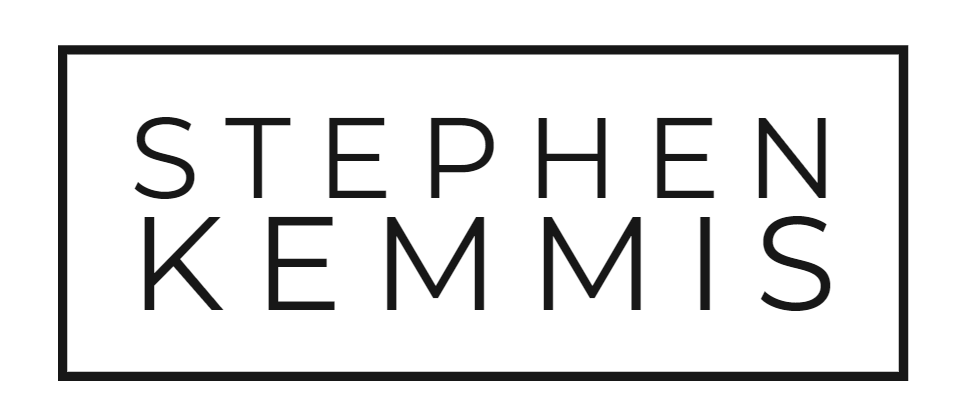My theoretical work in curriculum studies has been concerned with the development and reconstruction of reproduction theory, for example in Curriculum Theorising: Beyond Reproduction Theory (with Lindsay Fitzclarence), Deakin University Press, 1986. This line of theoretical work was further developed through an Australian Research Council-funded project “Educational Reform in Australia, 1972-88”, and has led to a variety of publications. One of my recent publications in curriculum is “System and lifeworld and the conditions of learning in late modernity” (Curriculum Studies, 2000, vol.6, no.3, pp.269-305). More practically, I contributed to debates about curriculum in Australia through the development of the notion of ‘the socially-critical school’, first outlined in a brief monograph Orientations to Curriculum and Transition: Towards the Socially-Critical School (with Peter Cole and Dale Suggett), Victorian Institute of Secondary Education, Melbourne, 1983. The theme of social justice in and through education remains central to my work. In 1980, I was one of a team conducting innovative case studies of schools aimed at illuminating issues of alienation. The results appeared in the book (by Peter Fensham, Colin Power, David Tripp and Stephen Kemmis) Alienation from Schooling (Routledge and Kegan Paul, London, 1986), including my fictionalized case study of “Addison Hills” High School. In 1981-3, I directed a multi-site case study evaluation of the Victorian Transition Education Program, a Commonwealth-funded program aimed at enhancing schools’ responses to the problem of transition from school to work or further study at a time of growing unemployment. This study was reported in a book Transition and Reform in the Victorian Transition Education Program (by Stephen Kemmis, David Dawkins, Lynton Brown, Barbara Cramer and Terry Reilly; published by the Transition Education Advisory Committee, Victoria, 1983). The evaluation team also produced twenty-four case studies of transition projects in schools and TAFE colleges, and a number of discussion papers. In 1985-6, I co-directed an evaluation of the Commonwealth’s Participation and Equity Program in Victoria, the successor program to the Transition Education Program. By now, unemployment in Australia, especially youth unemployment, was at a level unprecedented since the Great Depression, and governments were committed to significantly improving Year 12 retention rates – promoting school and curriculum reforms aimed at encouraging students to stay in school longer. The evaluation of the Program was published in Dilemmas of Reform: The Participation and Equity Program in Victorian Schools (by Fazal Rizvi and Stephen Kemmis; Deakin Institute for Studies in Education, Deakin University, Geelong, Victoria, 1987). These studies threw light on the issues of school alienation and the response of schools to initiatives aimed at meeting the needs of young people previously under-represented in schooling in the post-compulsory years. They also contributed to contemporary debates about the connections between social justice and education as the issues were played out in school organization, curriculum, pedagogy and assessment practices of the 1980s. Since late 1997, I have been working with colleagues to develop and investigate the theory and practice of ‘full service schooling’ – especially the community development approach to full service schooling.. Collaborators in this endeavour have included the Australian Council for Equity through Education, the Australian National Schools Network, and the Myer Full Service Schools Project (coordinated by Berry Street and Banksia Secondary College). In April 2000, the Australian Centre for Equity through Education published a kit of materials about the work of a research circle of schools and colleagues exploring the theory and practice of full service schooling using an action research approach; the kit includes my case study of the project The Full Service Schools Story (which contains an updated version of a presentation on social justice and education given at a Community Consultation Day at Banksia Secondary College). My other publications on full service schooling include: ‘Building a Community of Practice: Developing Full Service Schools” (presentation to an ACEE conference in Sydney in September, 1998); “The Aspirations of the Full Service School: Individual and Community Development” (with Theresa Lynch; prepared for the Myer FSS Project, June, 2000); “Full Service Schooling: Developing Students and Communities” (a paper for a conference on FSS at Penrith, NSW, August, 2000); and “Full Service Schooling”, Independent Education, vol.30, no.3, October 2000, pp.27-8. My interest in practitioner research led to an invitation to prepare a commissioned paper (with Viv White of the Australian National Schools Network) The Research Functions of the Victorian Institute of Teaching for the Ministerial Advisory Group on the Victorian Institute of Teaching. The paper argues the case that the Institute should promote and support research by teachers and schools in addition to its roles in registering teachers and accrediting teacher education programs. At the invitation of the Australian Association for Research in Education, I presented the 2000 Radford Lecture at the Association’s Annual Conference in December 2000. My lecture, Educational Research and Evaluation: Opening Communicative Space, advocated more inclusive approaches to research and evaluation (especially to include practitioners and others) and the roles for research and evaluation that contribute to the public sphere and the development of social movements. (In 2001, it was published in The Australian Educational Researcher, vol. 28, no.1, pp.1-30.) A year later, in 2001, I accepted the Association’s invitation to become an Honorary Life Member.
Curriculum, the socially-critical school, and full service schoolingStephen Kemmis2021-12-28T13:30:42+10:00
